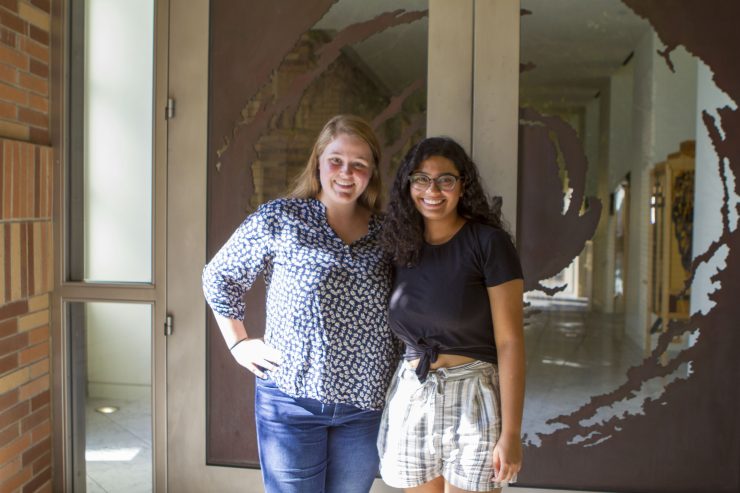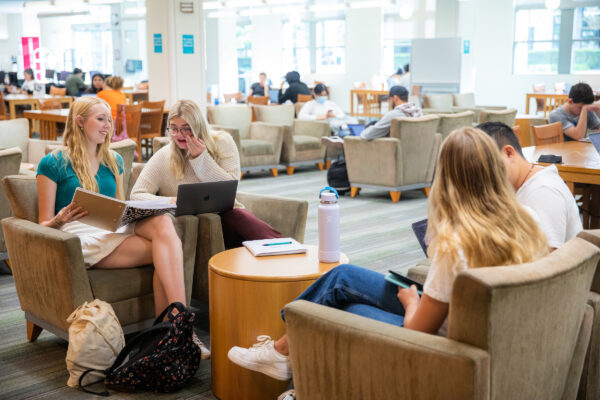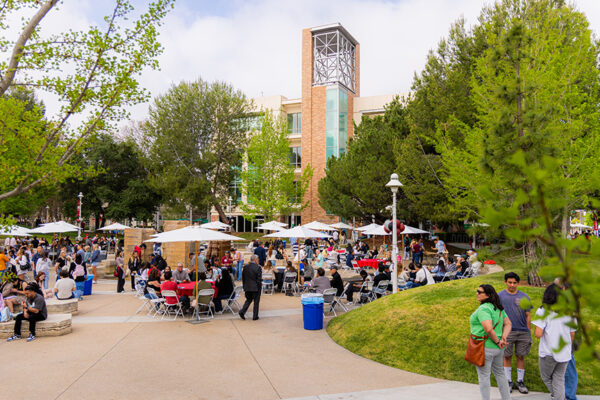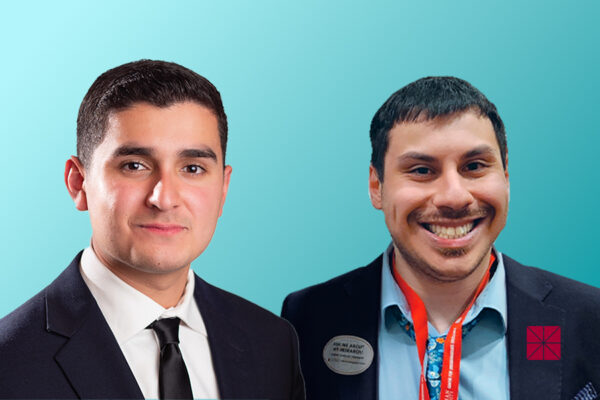It’s safe to say that these days it can take an act of courage to start a discussion about politics. But what if taking part in conversations about faith can help bring people together?
Chapman University students Bryleigh Blaise ’20 and Mona Asadi ’22 have experienced the impact interfaith dialogue can have.
Blaise, a long-time Catholic and past president of the Newman Catholic Fellowship, and Asadi, who grew up in the Bahá’í community, recently attended the Interfaith Leadership Institute hosted by Interfaith Youth Core, which is an organization of students and educators in higher education who are committed to American religious pluralism.
We sat down with Blaise and Asadi at the Fish Interfaith Center to talk about what they learned and what they hope to share with the campus community this year.
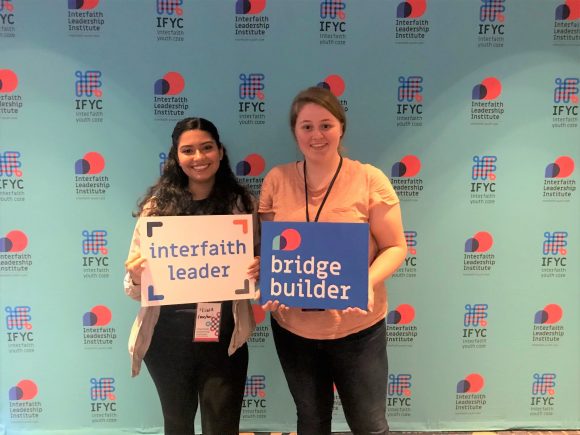
Q: Why is Is being in touch with spirituality important for college students today?
Blaise: Not everyone is going to be spiritually inclined. But I think it’s something that every person needs to think about in their life—it’s not something that they should be apathetic about. And I think everyone has a moral obligation to try to explore that part of themselves.
Asadi: I think in college over the past couple years there’s this great trend of people pulling away from religious traditions. At the end of the day, it’s a choice. I think you do owe it to yourself to say, maybe there’s something out there I can jump into and know deeper parts of myself. It’s a great opportunity to say, I’ve never heard about the Buddhist tradition. Let me go talk to someone about it.
Q: What were the biggest takeaways from the conference?
Blaise: The biggest takeaway was learning that we’re not a melting pot–we are a potluck.
Asadi: America is not a melting pot like we’ve been told!
Blaise: The founder of the Interfaith Youth Core, Eboo Patel, gave a speech our first night and he talked about how we need to get rid of this idea that we are a melting pot, because we’re actually this giant potluck, where everyone brings their own dish with their own spices and everyone can sit at a grand table and eat from all these different meals.
Blaise: We’re all coming to this table, bringing our uniqueness. And I think out of everything, that’s one of the key things we should bring back here and to our towns and our cities and our communities.
Asadi: We also talked about not feeling like you have to take religion out of your intersectionality. For example, when you go into a classroom setting and you have something that you could contribute to the class discussion that goes back to your faith, but you feel like, oh, I can’t bring this into a classroom setting, because it’s a secular setting which it is. But we have to remember that our faith and our spirituality inform who we are. And if we’re going to bring who we are into a classroom setting, then we should bring all of who we are.
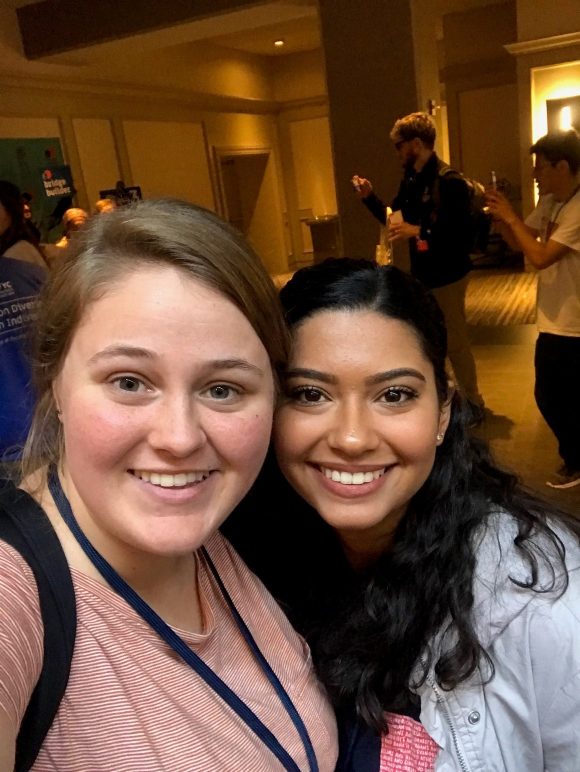
Q: Why is Interfaith dialogue so important?
Asadi: It’s so important because it’s another thing that’s going to unite us. And I feel that especially in this political climate, today in America, It’s all about what’s dividing us. If we can start to talk openly about hot topics and learn how to do it in a way that’s conducive to building relationships, then I think that’s going to help to bridge a lot of the divides.
Blaise: At the core of interfaith dialogue is respecting one another for differences. If we could do that, on a grand scale, in this nation, think of the changes we can make in this country.
Q: Has interfaith dialogue added to your own spirituality?
Asadi: Definitely. Taking classes on different faiths helps too. I took a class on intro to Islam and that helped me learn how the Bahá’í faith, which originated in Persia, intersects with Islam. The more I learn about different religions, the more I can also bring to the table in my own worship. For example, I took a class that revolved around meditation, and now I meditate when I’m feeling anxious, and I bring meditation into my prayer.
Blaise: Interfaith work has really made me go back and think about Christian ideals and Catholic principles and teachings. Interfaith work doesn’t mean you give up your faith or try to convert somebody, it’s about building better communities. And these dialogues make me a better Catholic.
Asadi: And I think that interfaith work doesn’t just make you a better Catholic or a better Bahá’í or a better Muslim. It makes you a better person, to be more compassionate, to be a better listener, to make deeper friendships that are based on actual communication and deep conversation.
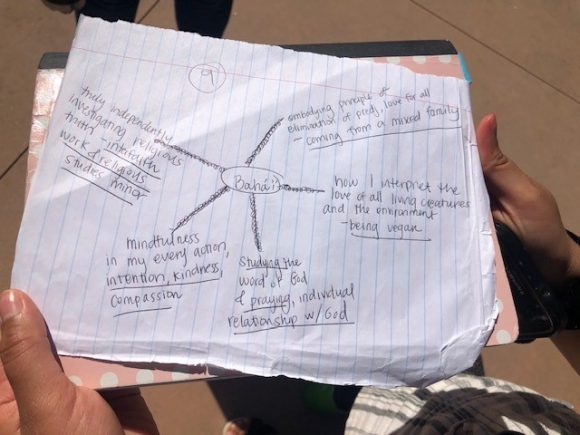
Q: Do you ever feel like interfaith dialogue is hard?
Blaise: It’s always hard to begin with. The hardest part is, where do you begin? You’re like, well, do we start with a hard topic or do we just talk about, like, holidays.
Asadi: Start with the similarities. Being able to talk through something that makes you uncomfortable–I think that’s something as a culture we don’t know how to do very well. It’s something we can work on!
What tips do you have for students, or anyone who wants to have discussions about faith?
Blaise: Start a dialogue with your friends and people you are close to. You might not even know your friend’s religious beliefs.
Asadi: Don’t be afraid to ask people what their spiritual beliefs are. And I think it’s important to lay out the groundwork beforehand and say, I am just asking, because I’m curious, I’d like to have a conversation with you that’s rooted in our friendship.
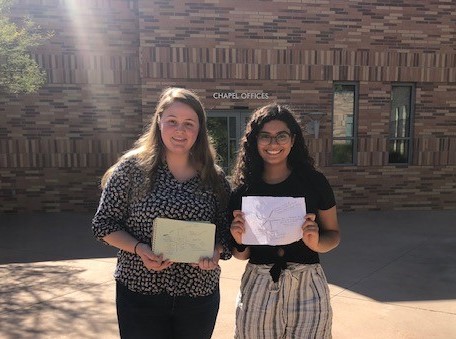
Q: What’s one thing you want people to know about the Fish Interfaith Center?
Blaise: I really want everyone in the Chapman community to know that interfaith resources are here and that people shouldn’t be afraid to come talk to us. Interfaith is for everyone.
Blaise is a senior psychology major and political science minor. She is also the past president of the Catholic Fellowship group.
Asadi is a sophomore double major in vocal performance and music education with a minor in religious studies.
